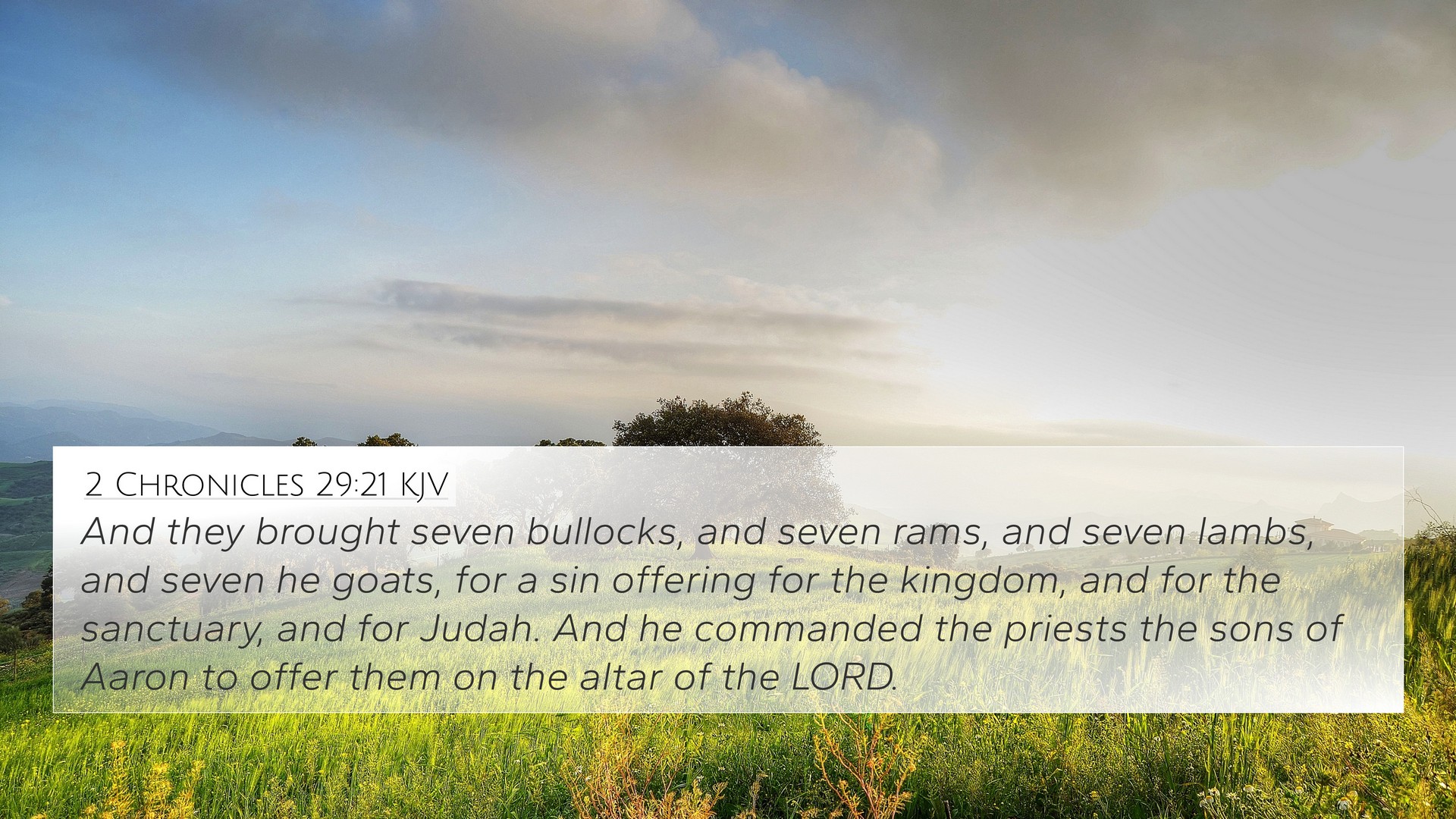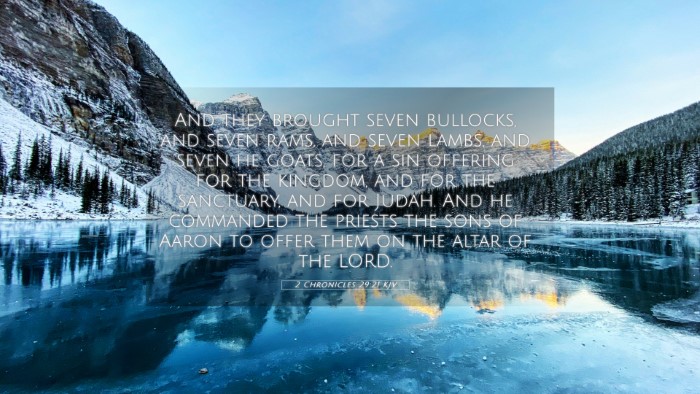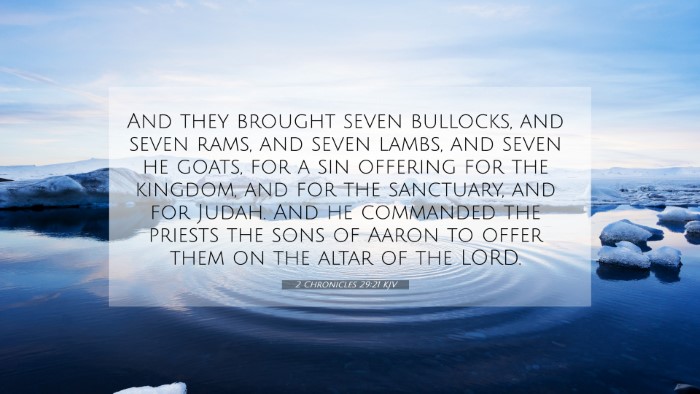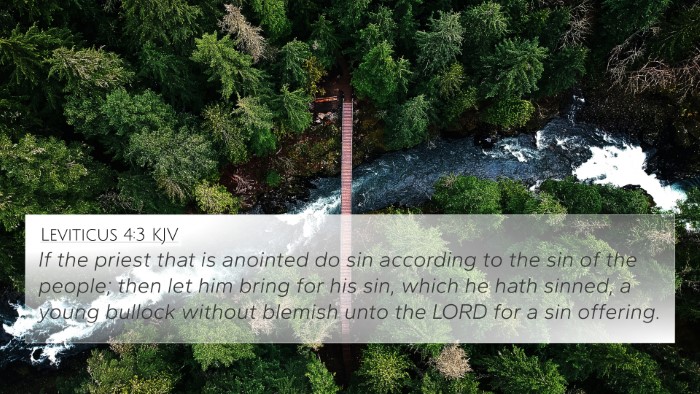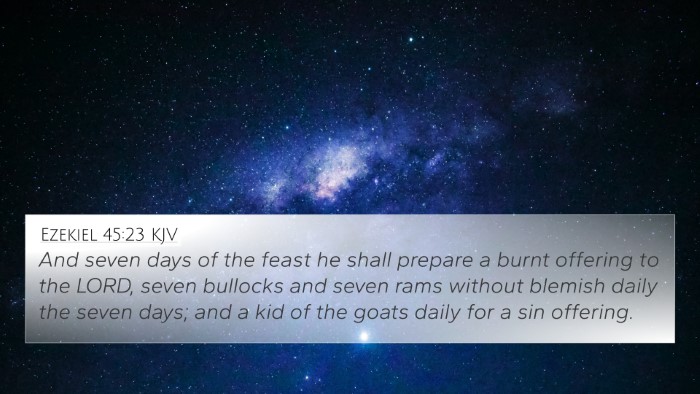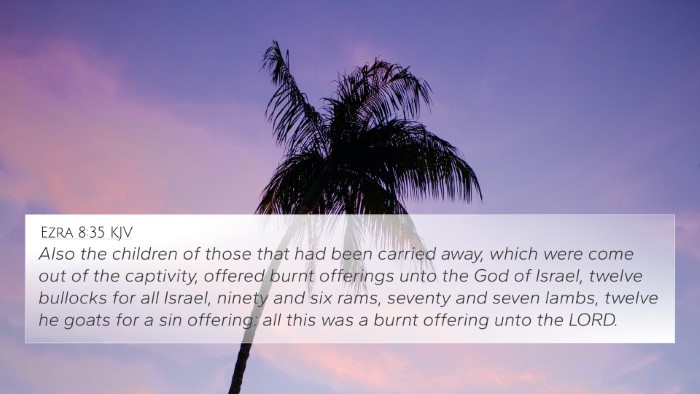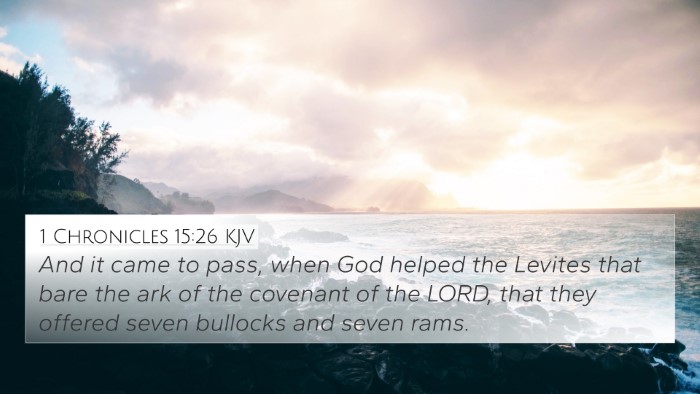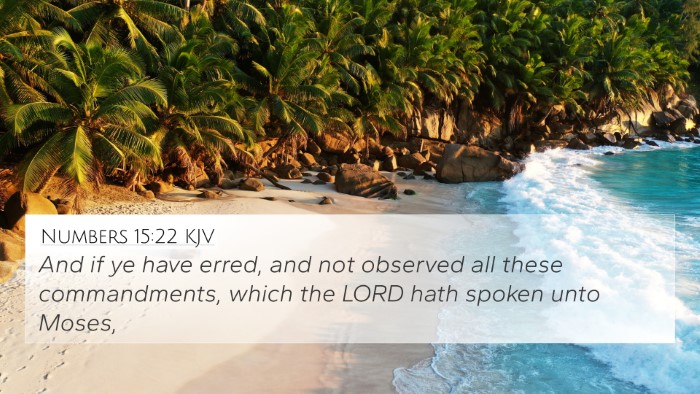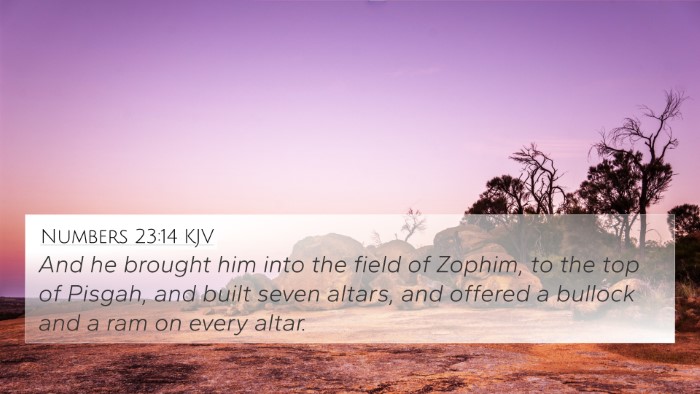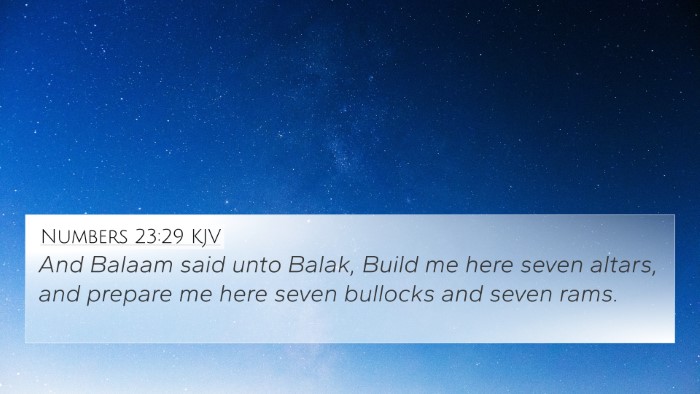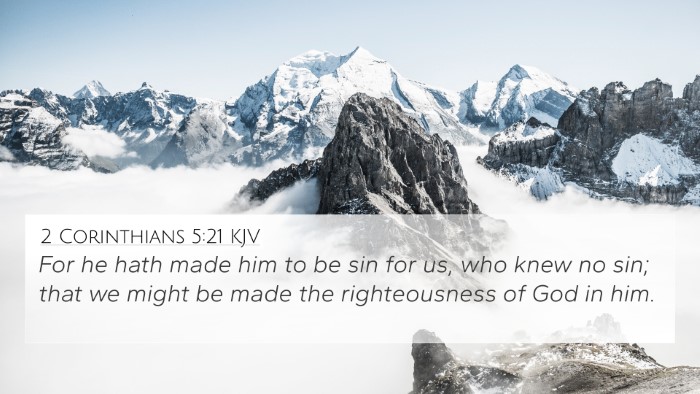Understanding 2 Chronicles 29:21
The verse 2 Chronicles 29:21 states, "And they brought seven bullocks, and seven rams, and seven lambs, and seven he-goats, for a sin offering for the kingdom, and for the sanctuary, and for Judah. And he commanded the priests, the sons of Aaron, to offer them on the altar of the Lord." This affluent offering symbolizes the nation's recognition of sin and the need for atonement and restoration before God.
Meaning and Interpretation
This verse can be understood through several layers of meaning, drawing insights from historical context, ritual significance, and spiritual implications.
Historical Context
In the context of 2 Chronicles, King Hezekiah reigns over Judah, a time of spiritual revival and reformation after periods of neglect of worship. This offering highlights Hezekiah's seriousness about reinstating proper worship practices and making atonement for the people.
Ritual Understanding
The number seven in the offerings represents completeness and perfection in the biblical narrative. By offering seven of each animal, Hezekiah is emphasizing the need for full and complete atonement for the collective sin of the kingdom.
Spiritual Implications
Spiritually, this passage reflects the principle of substitutionary atonement, wherein these animals symbolize the need for a perfect sacrifice in payment for sin, ultimately leading to the understanding of Christ's sacrifice in New Testament theology.
Cross-References and Thematic Connections
2 Chronicles 29:21 can be linked to various other scriptural texts that reinforce its themes:
- Leviticus 4:32-35 - Details on offering a sin offering for unintentional sin.
- 2 Chronicles 30:15 - Describes a similar act of sacrificial worship during Passover.
- Isaiah 53:6 - Prophetic foreshadowing of the suffering servant who bears sin.
- Romans 3:25 - Discusses Jesus as a sacrifice of atonement through faith.
- Hebrews 9:26-28 - Talks about Christ's sacrifice as the ultimate offering.
- 1 Peter 2:24 - The concept of Christ bearing our sins in His body on the tree.
- Psalm 51:17 - God’s focus on a broken and contrite heart rather than mere sacrifices.
Comparative Bible Verse Analysis
This verse can be enriched further through comparative analysis with other instances of offerings and atonement practices found in the Bible. These connections help illustrate the continuity of God's plan for redemption.
- Connections Between Bible Verses: Notice the correlation of Hezekiah’s offerings with the Passover sacrifice in Exodus.
- Bible verses that relate to atonement: Explore the link between 2 Chronicles 29:21 and the New Testament's depiction of the sacrificial system fulfilled in Christ.
- Comparative Study of Pauline Epistles: Assess how Paul addresses the concept of sacrifice and atonement, drawing parallels with Old Testament practices.
Tools for Bible Cross-Referencing
To fully grasp the interconnectedness of these themes, here are some tools and methods for effective Bible cross-referencing:
- Bible Concordance: A comprehensive index of biblical words providing references to their occurrences.
- Bible Cross-Reference Guide: Notebooks or online tools that help in tracing thematic similarities across scriptures.
- Cross-Reference Bible Study: Techniques for comparing verses and drawing thematic conclusions across different books of the Bible.
- Bible Chain References: A method of linking verses to explore broader biblical themes.
Practical Application
Understanding 2 Chronicles 29:21 is relevant for today's believers in terms of acknowledging the importance of repentance and the sacrificial nature of true worship. Engaging in spiritual offerings in the form of our time, talents, and resources reflects the heart of such ancient practices.
User Intents and Queries
For those seeking deeper insight into this particular verse, consider exploring:
- What verses are related to 2 Chronicles 29:21?
- Similarities between 2 Chronicles 29:21 and Romans 3:25.
- Finding cross-references for atonement within both testaments.
